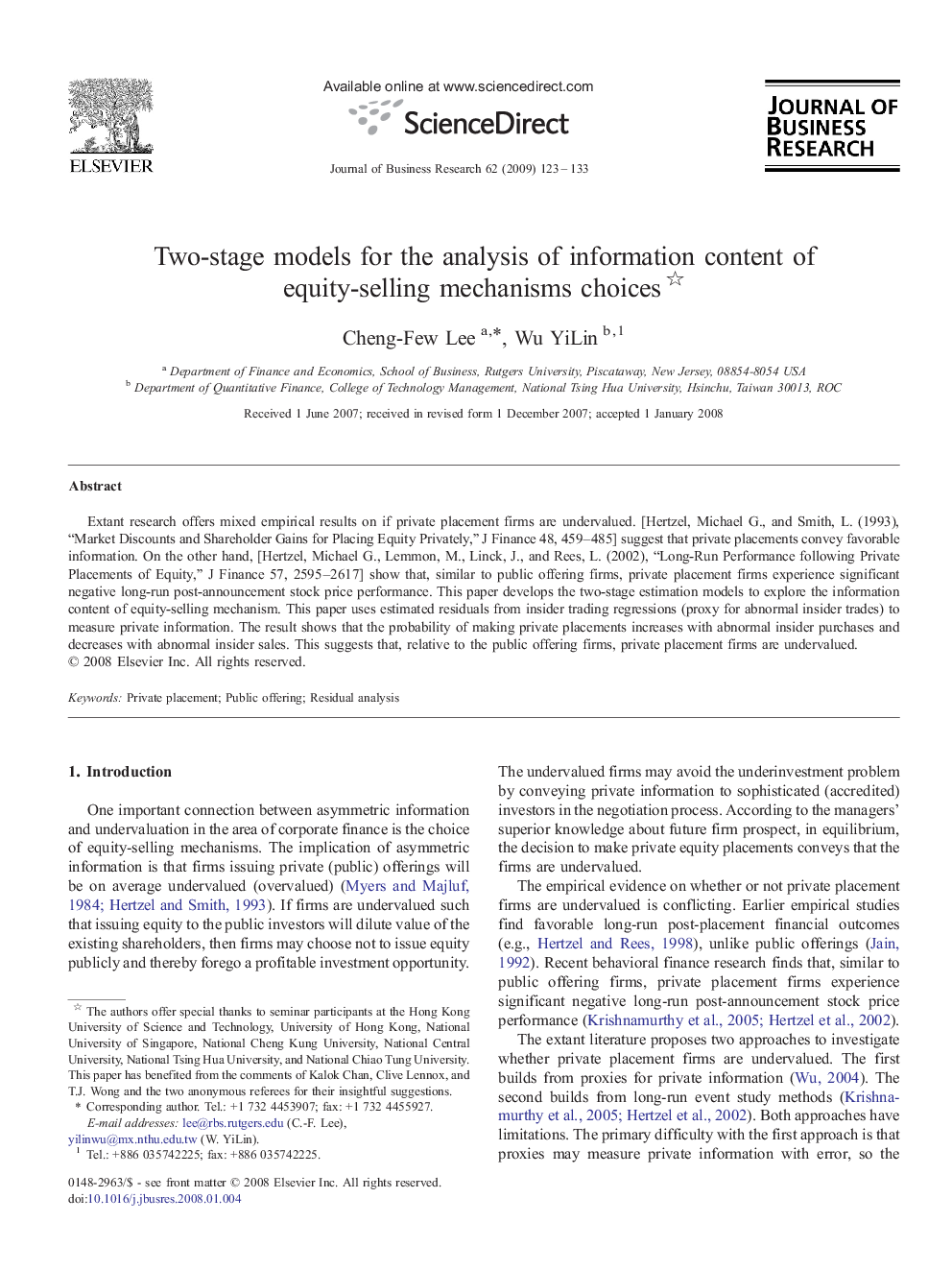| Article ID | Journal | Published Year | Pages | File Type |
|---|---|---|---|---|
| 1018805 | Journal of Business Research | 2009 | 11 Pages |
Extant research offers mixed empirical results on if private placement firms are undervalued. [Hertzel, Michael G., and Smith, L. (1993), “Market Discounts and Shareholder Gains for Placing Equity Privately,” J Finance 48, 459–485] suggest that private placements convey favorable information. On the other hand, [Hertzel, Michael G., Lemmon, M., Linck, J., and Rees, L. (2002), “Long-Run Performance following Private Placements of Equity,” J Finance 57, 2595–2617] show that, similar to public offering firms, private placement firms experience significant negative long-run post-announcement stock price performance. This paper develops the two-stage estimation models to explore the information content of equity-selling mechanism. This paper uses estimated residuals from insider trading regressions (proxy for abnormal insider trades) to measure private information. The result shows that the probability of making private placements increases with abnormal insider purchases and decreases with abnormal insider sales. This suggests that, relative to the public offering firms, private placement firms are undervalued.
